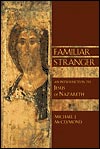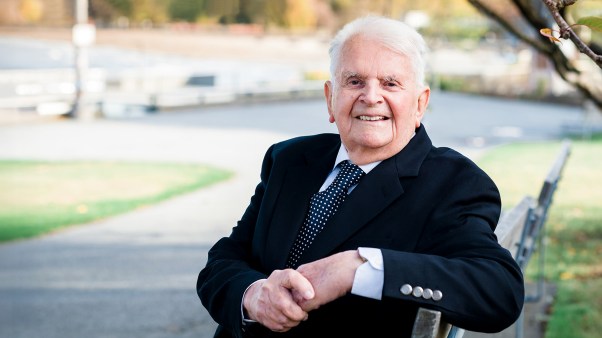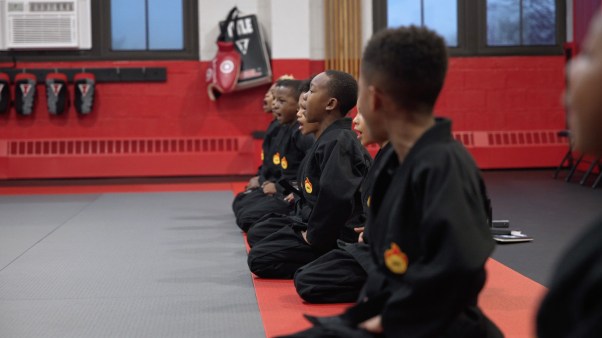 |
For the last few years I’ve threatened to write a book titled The Jesus I’ll Never Know. It would be a response to the tendency in the wider world of U.S. Christianity to personalize the Son of Man—and tame him in the process.
As the vulgar Eric Cartman character of the South Park cartoon memorably put it, Christian tunes often sound like love songs that swap in “Jesus” for “baby.” Likewise, in the M. Night Shyamalan movie Wide Awake, Rosie O’Donnell played the role of Sister Terry, a baseball-cap-wearing nun who assigned her young students chapters in the workbook Jesus Is My Buddy as homework.
The point of my book would be that the closer we get to the Gospels, the more we realize that these four witnesses to Jesus’ life and ministry intentionally placed some distance between the reader and the wonder-working preacher from Nazareth. Of Jesus’ childhood we know little. We get a quick peek at him as a young man, going at it with scribes in the Temple (foreshadowing the fireworks to come); then we see him fully grown, being baptized by John, proclaiming the kingdom of God, teaching, healing, casting out evil spirits, calming stormy waters, and hurtling himself toward his own demise by refusing to make nice with Jerusalem or Rome.
But we don’t really “see” Jesus. For some reason—possibly the Jewish prohibition of idolatry—the Gospel writers forgo almost all physical description of him. Whether Jesus towered over the crowd like Saul or could see eye-to-eye with Zacchaeus we know not. And so we guess: The history of Christian iconography attests to the thousands of attempts to give physical expression to this mystery.
One of the many things that I appreciate about Michael J. McClymond’s new introduction to scholarly approaches to the life of Christ, Familiar Stranger, is that the theologian from Saint Louis University respects this distance. McClymond scorns scholarly attempts to intuit Jesus’ feelings and motives. And yet he wields modern Bible scholarship as an effective tool to goad us closer to the truth.
The buildup is methodical but effective. In the opening chapters, McClymond gives people a rough overview of the current scholarship of the issues surrounding Jesus’ life and ministry. He starts with the broader religious and political culture and, as the book progresses, narrows to Jesus’ mission and message. When he weighs into scholarly controversies, he has a way of being reasonable. Given his careful approach—his reluctance to put Christ on the couch, if you will—it should hardly surprise that Jesus-Seminar-type arguments do not make out well.
McClymond seems to realize that Jesus’ message is a little easier to get at than his portrait, but not by much. He spoke in parables, and the context for making sense out of them is not always obvious. Even his closest confidants either didn’t know or didn’t fully believe that he was God’s “only begotten Son” until after the Easter event.
In his post-resurrection appearances, Jesus is very much alive but at the same time different. Physically, he’s not a ghost, but he’s not what we would normally describe as human. He has holes in his hands and side and seems to have need of food, but normal constraints like, oh, walls or gravity, no longer apply. Attitudinally, he seems more impatient, more driven, more aloof than the prophet who would not let his audience go away hungry, and who insisted that the little children be allowed access to him. He appears driven to complete his mission and go home.
Overviews of Jesus scholarship are hardly new. McClymond notes the most famous author in this genre was Albert Schweitzer, the German physician who wrote The Quest of the Historical Jesus. It was a depth charge of a book whose impact still reverberates among Jesus scholars. The physician ridiculed attempts to reconstruct Jesus as an enlightened liberal and forcefully pressed the case that these academics often view Jesus through the narrow lenses of their own concerns.
If scholars thought there was no such thing as divine intervention, Schweitzer argued, then Jesus was just one smart cookie who was misunderstood. If a professor had a strict religious upbringing that he was trying to live down, then Jesus was some kind of ancient hippie, and all that fire-and-brimstone stuff was a product of the conflict between the religious authorities and the early church.
Jesus the Magician
No one would accuse Schweitzer of fashioning a mirror-image Jesus with his failed apocalyptic prophet of doom. Nor have all modern scholars projected themselves onto Jesus. But they have looked at the same data, with some supplemental material thrown in, and come up with different reconstructions: from Jesus the Torah-observant rabbi to Jesus the magician to Jesus the cynical, wisdom-spouting sage. As McClymond deftly puts it, “The scholars’ reconstructions are balanced as delicately as an artist’s mobile: touch one piece and all the rest tremble in their places.”
McClymond is a theologian and not a text critic or a language scholar, so he is inclined to pull strands of information together, rather than apart. He challenges the sometimes narrow field of biblical studies by insisting that the distinctions that seem so important for conference papers and journal articles are not significant for helping most Christians to understand the life and message of Jesus of Nazareth.
Yes, Jesus was a teacher of Jewish wisdom, the author says, but he also warned that the end would come, and many would be caught unawares. He was kind, but he was also “a totalitarian,” insisting that he was the one true path to God the Father.
In contrast to what McClymond calls the “family values Jesus” of modern evangelicalism, the author issues some “hard sayings” of his own in the final chapter. The two most stinging are “Jesus sided with the poor”—which might call for some family sacrifices—and “Jesus was a home wrecker” (recall his warning that following him would bring division). McClymond’s own all-too-brief portrayal of Jesus is what the kids in Narnia would have called “not a tame lion.”
To make their cases for a kinder, gentler Jesus, modern scholars must exclude large chunks of Jesus’ teachings. McClymond argues that most proposals to exclude whole classes of Jesus’ statements simply won’t work. He gives two reasons. First, we don’t know enough about the composition histories of the Gospels to do this with any degree of confidence. Second, it reeks of cherry-picking.
If the reader decides to look for a certain predetermined Jesus and to exclude all contrary evidence, McClymond says, then she will find what she’s looking for—but probably miss the guy who changed the world, and overcame it.
Jeremy Lott is the foreign-press critic for GetReligion.org.
Copyright © 2005 Christianity Today. Click for reprint information.
Related Elsewhere:
Familiar Stranger is available from Christianbook.com and other book retailers.
More information, including an excerpt, is available from the publisher.
Michael McClymond is a professor at St. Louis University. His page has more information about his courses and writing topics.
Other articles about the real Jesus include:
Crash-Helmet Christianity | Talking about the real Jesus is a dangerous thing. (April 07, 2004)
Jesus’ Sword | Longing for peace in tumultuous times. (May 07, 2003)
The Jesus Scandal | The church has a long history of discomfort with Christ. (Feb. 19, 2002)
No More Hollow Jesus | In focusing so intently on Jesus the man, Peter Jennings’ report missed the big picture. (July 3, 2000)
Jennings on Jesus | ABC anchorman Peter Jennings discusses what moved him as he filmed a special on the life of Christ. (June 26, 2000)
Desperately Seeking Jesus | A review of “The Epic Miniseries” (May 12, 2000)
Lights, Camera, Jesus | Hollywood looks at itself in the mirror of the Messiah. (May 12, 2000)
For more books, our Books & Culture Corner weekly reviews books. More reviews and interviews are available from our Book page, as well as our 2004 Book Awards page.










